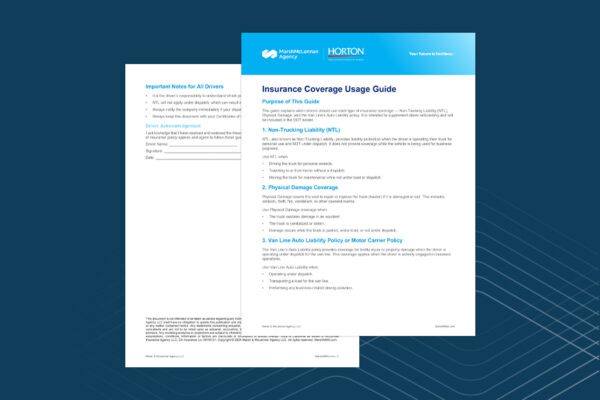While there may be some challenges in the path to parenthood, how individuals build their family is unique to them. The pandemic has added to the worries and challenges for individuals trying to build their families, as COVID-19 lockdowns kept potential parents and children separated, and most fertility treatments were stalled in 2020. As restrictions loosen and more health care services resume, the demand for family planning services is on the rise again. Family-building benefits can offer holistic support to employees as they navigate their journeys to parenthood.
With open enrollment right around the corner, employers have an opportunity to provide unique benefits and serve a diverse workforce. This article discusses how employers can explore and offer family-building benefits to help attract top talent, support employees and decrease health care costs.
Family-building Benefits Overview
Family-building benefits are becoming increasingly popular with employees around the country, as they inclusively support the unique and complex ways that individuals and couples build their families. Such benefits can provide employees peace of mind as employers demonstrate their emotional and financial support for employees’ decisions to build a family.
Benefits designed to help employees create their families can take many different forms. Here are some of the most common ways employees may be building their families and how employers can support them through benefits:
- Fertility treatment—One in 8 couples have trouble getting pregnant or sustaining a pregnancy, according to the Centers for Disease Control and Prevention. Fertility treatments can help. They often include medications and are sometimes combined with surgical procedures. Two of the most common fertility treatments are intrauterine insemination (IUI) and in vitro fertilization (IVF). Fertility benefits may cover anything from an infertility diagnosis and medication to IUI and IVF procedures. Due to high procedure costs, traditional coverage plans typically cover genetic or diagnostic testing and maybe one round of IUI or a partial round of IVF.
- Donors and surrogacy—Donor sperm, donor eggs or embryos, and surrogates are often used by single people or same-sex couples who want to have a baby. Donor sperm and eggs may also be used if an individual’s own is causing infertility. These benefits typically take the form of cash reimbursements.
- Adoption—Adoption benefits are typically similar to those available to new biological parents. Paid or unpaid leave for adoption and financial assistance from employers has been trending to include all new parents. This benefit can be relatively inexpensive because few employees use it. Still, the inclusive support of all new parents is an opportunity to build a good employer brand for being considerate to and supportive of employees.
Not only is building a family physically and financially tough, but the process can also take a massive mental toll on the individuals and couples who want to become parents. Therefore, comprehensive benefits may also extend to counselor visits and other mental health resources.
For additional support, employers are turning to third-party insurance providers that focus on providing supplemental policies to fill in the gaps of traditional health plans.
Why Employers Are Offering Family-building Benefits
Benefits to support family building began shifting beyond traditional coverage of infertility treatment even before the pandemic. As employers evaluate their benefits offerings before open enrollment season, they should be aware of several competitive advantages that may come with offering family-building benefits.
Boosted Employee Retention
First and foremost, family-building benefits can be an important component of the overall benefits package. Benefits matter more now than ever to employees in a post-pandemic workplace. And, family-building benefits may be more desirable to employees than more standard benefits, such as student loan repayment assistance and critical illness insurance.
The family-building or infertility journey is taxing, and having an employer’s financial and emotional support can help alleviate some stress for those employees. As a result, family-building benefits can help employees feel happier and more fulfilled at work, which can translate into stronger employee loyalty. According to a survey by FertilityIQ, 61% of employees who received fertility coverage from their employer reported feeling more loyal and committed to their employer. Additionally, 88% of women who had their IVF fully paid for by their employer returned to the workplace after maternity leave. These numbers make it clear that employers can take care of their business by caring for their employees.
Family-building benefits can be advantageous to the millennial workforce. According to a Mercer study, 68% of millennials consider fertility preservation and infertility coverage when choosing an employer. Furthermore, the growing number of single people and same-sex couples planning families suggests an increasing need for surrogacy or adoption benefits. Meaningful benefits can be part of a robust employee attraction and retention strategy.
Increased Employee Productivity
Employees struggling with infertility or managing other family-building issues are often stressed and distracted—both at home and work. That can lead to employees being preoccupied and less productive in the workplace. Employees who feel supported are less stressed, less distracted at work and, therefore, more productive. When some of the stress of their path to parenthood is alleviated, employees can show up stronger in the workplace.
Inclusive Employee Support
Growing social equity concerns are driving employers to reevaluate benefits plans to meet the needs of a diverse and changing workforce. Comprehensive family-building benefits demonstrate that the organization cares about all its employees. Family-building benefits can be valued by employees, regardless of their gender identity or relationship status. This benefit can provide services for single and LGBTQ employees as well as heterosexual and same-sex couples who depend on fertility treatment for their family-building journey.
In turn, when employees feel welcomed and supported in the workplace, employee engagement and retention are likely to increase. This can also help boost the organization’s employer brand to current and prospective employees and the public.
It’s also important to keep in mind that both men and women experience infertility equally. According to the American Society for Reproductive Medicine, approximately one-third of infertility is attributed to the female partner, one-third to the male partner, and one-third to both partners or is unexplained. Because infertility can impact anyone, regardless of gender, these benefits can be valuable to all employees, not just one group.
Health Care Savings
A comprehensive, family-building benefits package can reduce organizations’ health care costs and improve outcomes. A managed fertility benefit that provides clinical oversight throughout an employee’s fertility journey allows employers and employees to lean on the fertility experience and the knowledge of those managing the benefit. As a result, that can increase the possibility of a successful and healthy pregnancy and birth, which may decrease pharmacy, neonatal intensive care unit and other costly related expenses.
Conclusion
Despite the need for family-building services, such care is inaccessible to many due to the cost. As a result, more employers are considering and offering family-building benefits to support their current and prospective employees inclusively. Comprehensive benefits like adoption and surrogacy matter to today’s diverse workforce and employers can demonstrate support for their employees by introducing or expanding their family-building benefits.
Material posted on this website is for informational purposes only and does not constitute a legal opinion or medical advice. Contact your legal representative or medical professional for information specific to your legal or medical needs.



